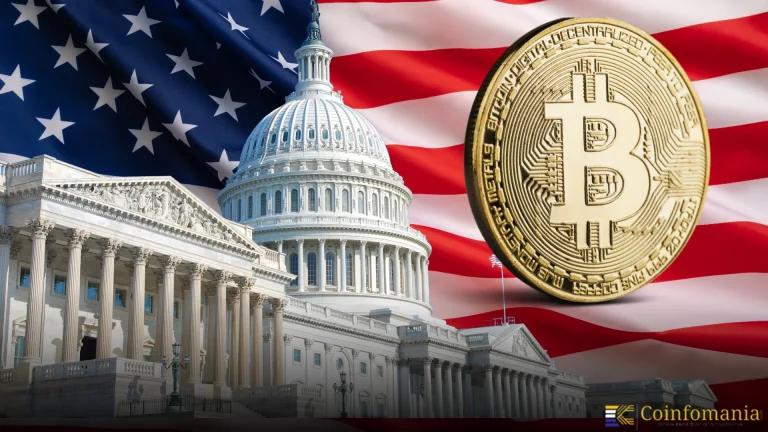Is BTC the Ultimate Hedge Against Economic Instability in 2025, As Bitcoin Price Breaks Above $93K?
The unstable 2025 economy boosts Bitcoin's appeal as a safe-haven asset. Explore how global trade disruptions are driving its rise amid economic uncertainty.

The economy’s unpredictable situation in 2025 provides Bitcoin with an exclusive opportunity that did not exist before. Bitcoin proves valuable during unstable market periods caused by changing trade rules and economic market stresses because it protects against conventional financial unpredictability.
Can Bitcoin Survive the Global Economic Shifts of 2025?
The world economy experiences increased instability in 2025 because of the U.S. government’s economic actions. The global trade framework now experiences increased unpredictability along with market volatility because President Trump chose to raise tariff levels. The projections from Goldman Sachs indicate that U.S. GDP growth will reach only 0.5% this year as the risk of economic recession has risen to 45%. The treacherous global economic conditions force central banks and policymakers to exercise great caution because inflation keeps rising and depletes their economic stabilization options. Global economic repercussions extend worldwide because Japan, the Eurozone, and emerging markets all project lower growth predictions.
The financial world is paying attention to Bitcoin because its global trends continue to reshape financial markets. Traditional market weaknesses have triggered the cryptocurrency’s emergence as a suitable institutional investment product that provides security during economic turbulence.
What Role Is Bitcoin Playing in Today’s Financial Environment?
Losses in worldwide equity market stability have propelled Bitcoin to become a preferred safe-haven asset among investors. Bitcoin’s interest has increased rapidly because investors fear currency devaluation and geopolitical risks, with simultaneous inflation concerns. The market capitalization of Bitcoin grew at a 15% rate from April 9 to April 21 of 2025, which indicated that institutions started trusting it more. The Bitcoin ETF sector experienced its most significant single-day flow of $381.4 million into its funds according to SoSoValue data, which was recorded on April 21, 2025, since the beginning of 2023.
Bitcoin’s market build-up occurs as the traditional financial sector faces ongoing trade tensions and monetary policy instability. As global economic conditions remain weak, Bitcoin price movements demonstrate independence from stock market behavior.
The Bitcoin price surged beyond $93,000 in April 2025, while its share of dominance in the cryptocurrency sector grew. The Bitcoin price stands higher than it does for Ethereum because Ethereum experienced cash outflows in comparison. The increasing distance between Bitcoin and other cryptocurrencies demonstrates that many investors are picking Bitcoin as their preferred digital asset in the current financial conditions.
Will Bitcoin Continue to Outperform Traditional Assets in 2025?
Bitcoin shows better potential for growth in the near future than traditional economic market transformations. According to macro investor Raoul Pal, the combination of dollar devaluation with increasing market liquidity has the potential to create strong fuel for Bitcoin’s growth. The future liquidity policies of central banks may create ideal conditions for Bitcoin to thrive since it will become the dominant digital currency when other investment options like bonds and equities generate less value.
Everyone needs and wants a weaker dollar to service their dollar debts. No one wants it to move too fast ( it blows up VAR) but they need it lower over next 12 months. This is the purest form of global liquidity and is the largest driver of global M2 currently. The US knows this…
— Raoul Pal (@RaoulGMI) April 22, 2025
Bitcoin does not have clear sustainability as an economic factor going forward. The present economic situation creates benefits, but continuous threats remain. Investors must exercise caution when dealing with Bitcoin because its market volatility shows patterns similar to global economic instability. Despite increased financial interest in Bitcoin’s asset value potential, the deteriorating macroeconomic conditions support its rising role in investment portfolios.
The unstable global economy proves that Bitcoin has established itself as a financial instrument emerging during economic instability. The unstable combination of economic issues, including trade wars, inflation, and slow economic growth, motivates many people to consider Bitcoin a distinct alternative. More institutions are adopting Bitcoin as an institutional strategy, which shows digital currencies are gaining acceptance as defensive instruments against economic events. Bitcoin’s direction after 2025 depends on multiple variables, but its status as a leading force in global financial planning remains intact.
Follow us on Google News
Get the latest crypto insights and updates.


